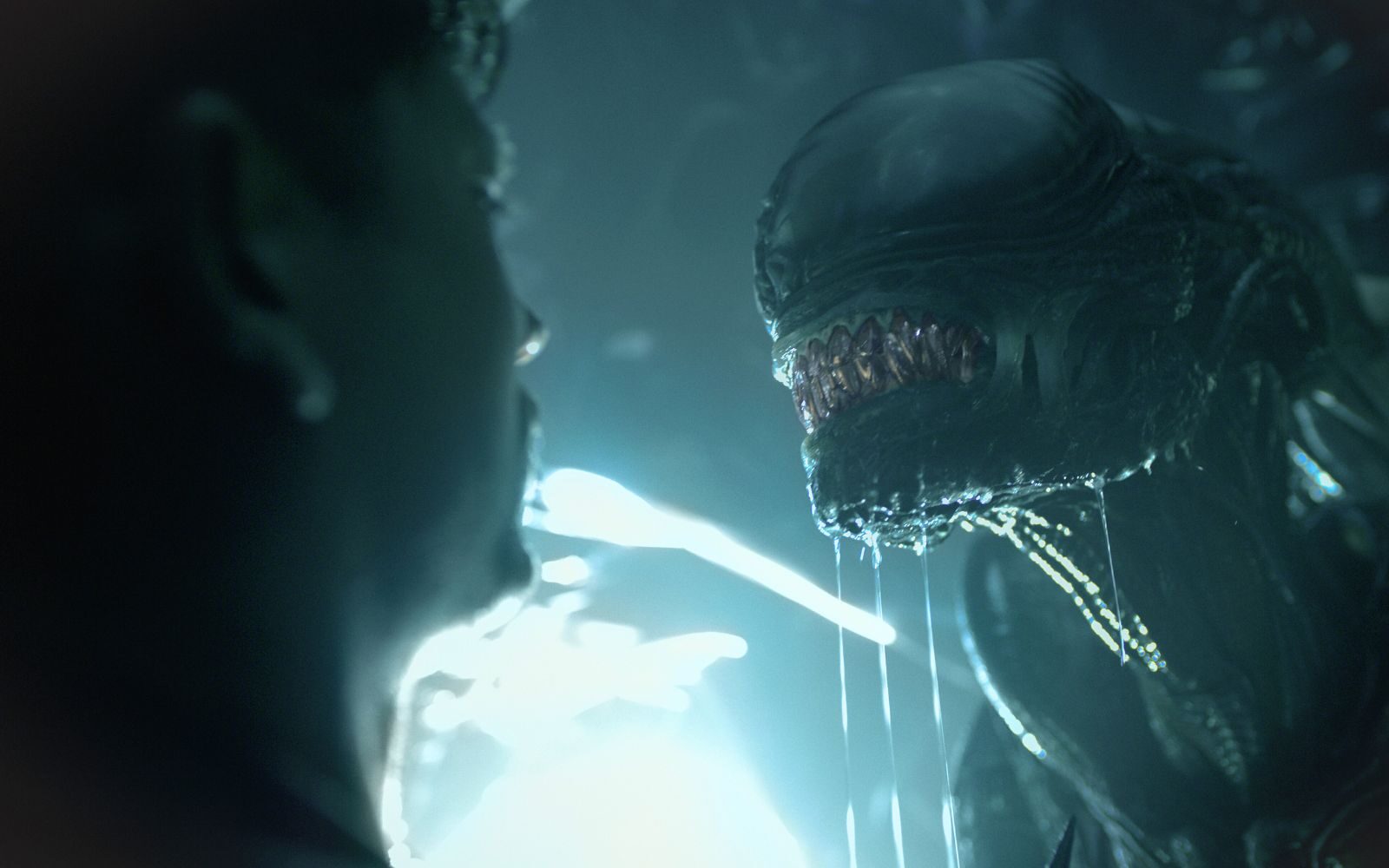
What Alien: Romulus Lacks in Character, (Mostly) Makes Up For In Atmosphere
Horror director Fede Álvarez delivers the best addition to the Aliens franchise since the 80s — but that doesn’t mean it's anything to write home about.
Directed by Fede Álvarez
by Prabhjot Bains
- Published on
In taking place between the events of Alien (1979) and Aliens (1986), Fede Álvarez’s standalone entry, Alien: Romulus, feels primed to evoke the best of its franchise— and in many ways it does. As our motley crew of Xenomorph prey clamour for their lives, the film shifts between the suffocating horror of Ridley Scott’s original and the action spectacle of James Cameron’s sequel, but rarely approaches the same heights. Romulus is what those classics might have been if they weren’t visionary or genre-defining: fun but never memorable. Though, Álvarez’s film does succeed as a thrilling B-horror, where glaring missteps in character are (mostly) made up for with sheer atmosphere.
Romulus opens on a planet whose residents are essentially indentured slaves for the infamous Weyland-Yutani corporation until their quotas are met. Our protagonist, Rain Carradine (Cailee Spaeny), yearns for the freedom of an untapped border planet and takes care of what’s left of her family, an obsolete android named Andy (David Jonsson). When faced with a never-ending quota, she joins an illegal space salvage to punch her own ticket to paradise but the alien life-form that awaits her and her friends has other plans.
Romulus would be far more effective if we cared for any of its characters. Most of the cast blend into one another, becoming an indistinguishable, homogenous whole that amounts to little more than Xenomorph fodder. While each horror set-piece is exhilarating, it’s hard to claim any of their deaths are devasting outside of pure shock value.
Spaeny’s Rain is a promising heroine reduced to a lesser Ripley. Any inkling of insight into her character is dashed the minute she’s handed a pulse rifle, condemned to the same plot beats as her franchise forebearer. While magnetic and captivating, Speany is never afforded the space to forge a distinct persona, and like the rest of the ensemble, is forced to engage in a shoddier retread of crew members we’ve seen before. The most egregious example is seen in the digital resurrection of a deceased actor from the original. Their presence equates to little less than an antagonist and little more than an exposition dump, with the deepfake technology used to animate them doubling as an eye sore that, at times, becomes more chilling than the killer alien on board. Ironically, the character Romulus gets right is the only one who isn’t human. Andy is given a level of existential pathos that gives audiences something to latch onto besides the next kill.
For all its missteps, There’s no denying Romulus is a grand piece of immersive horror. There’s a haunting liminal beauty here that wriggles under the skin. Each alarm blare, whirring retro-computer screen, flickering empty hallway, and visceral neon red envelopes the senses. Such sonic-visual mastery demands to be seen on the biggest screen possible. While Alien: Romulus is the best franchise entry since Aliens, it isn’t anything to write home about. Nonetheless, it’s the most entertaining and enthralling the middle-of-the-road can get.
Alien Romulus is in Theatres Nationwide on August 16, 2024

